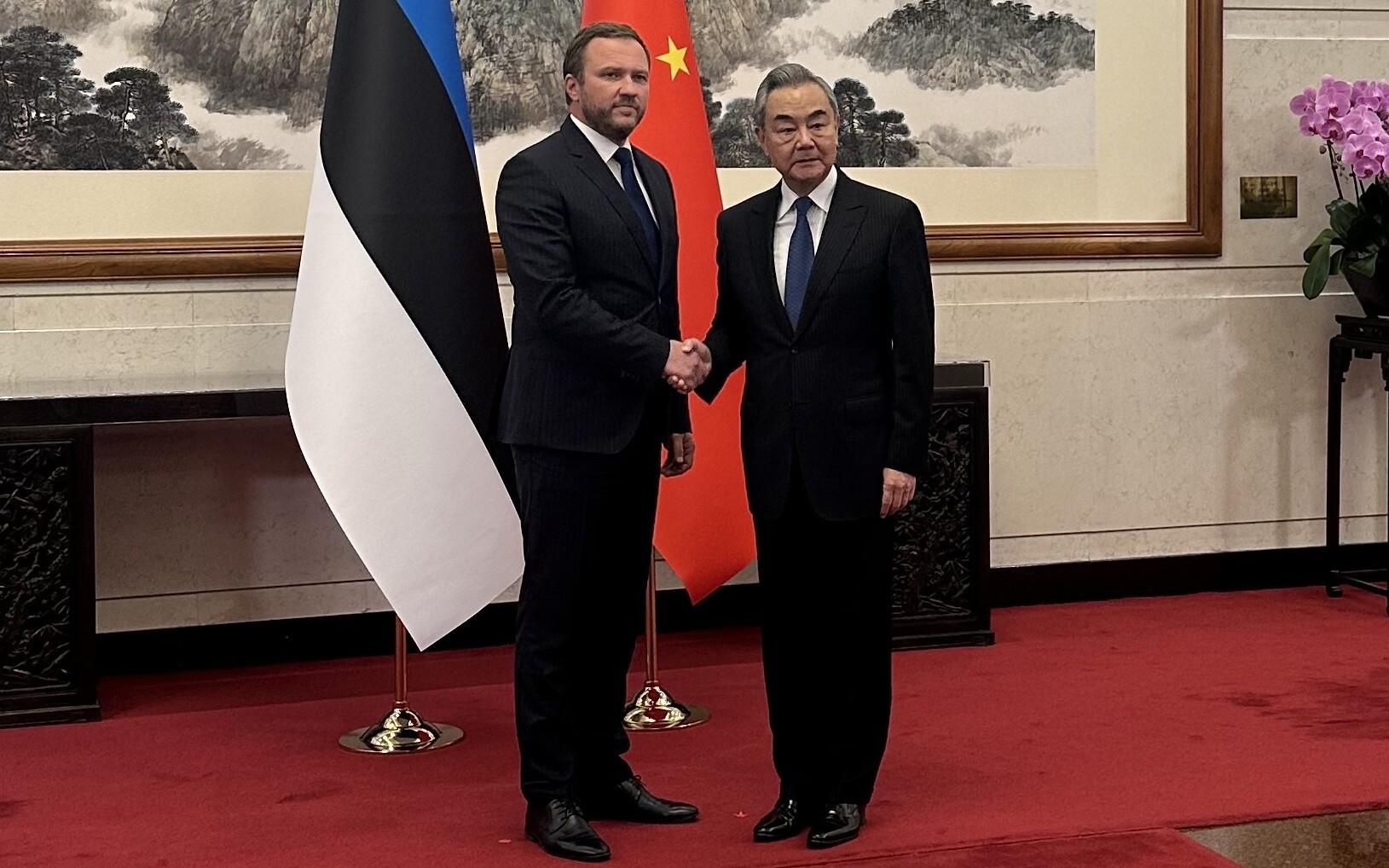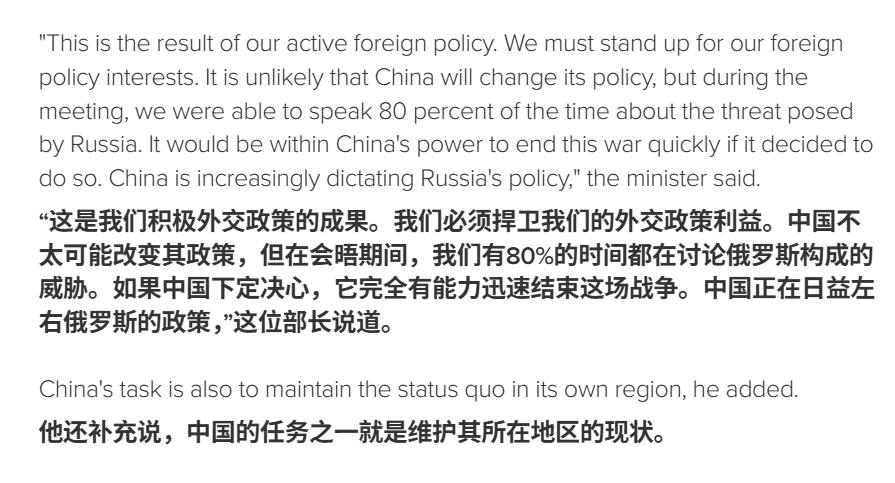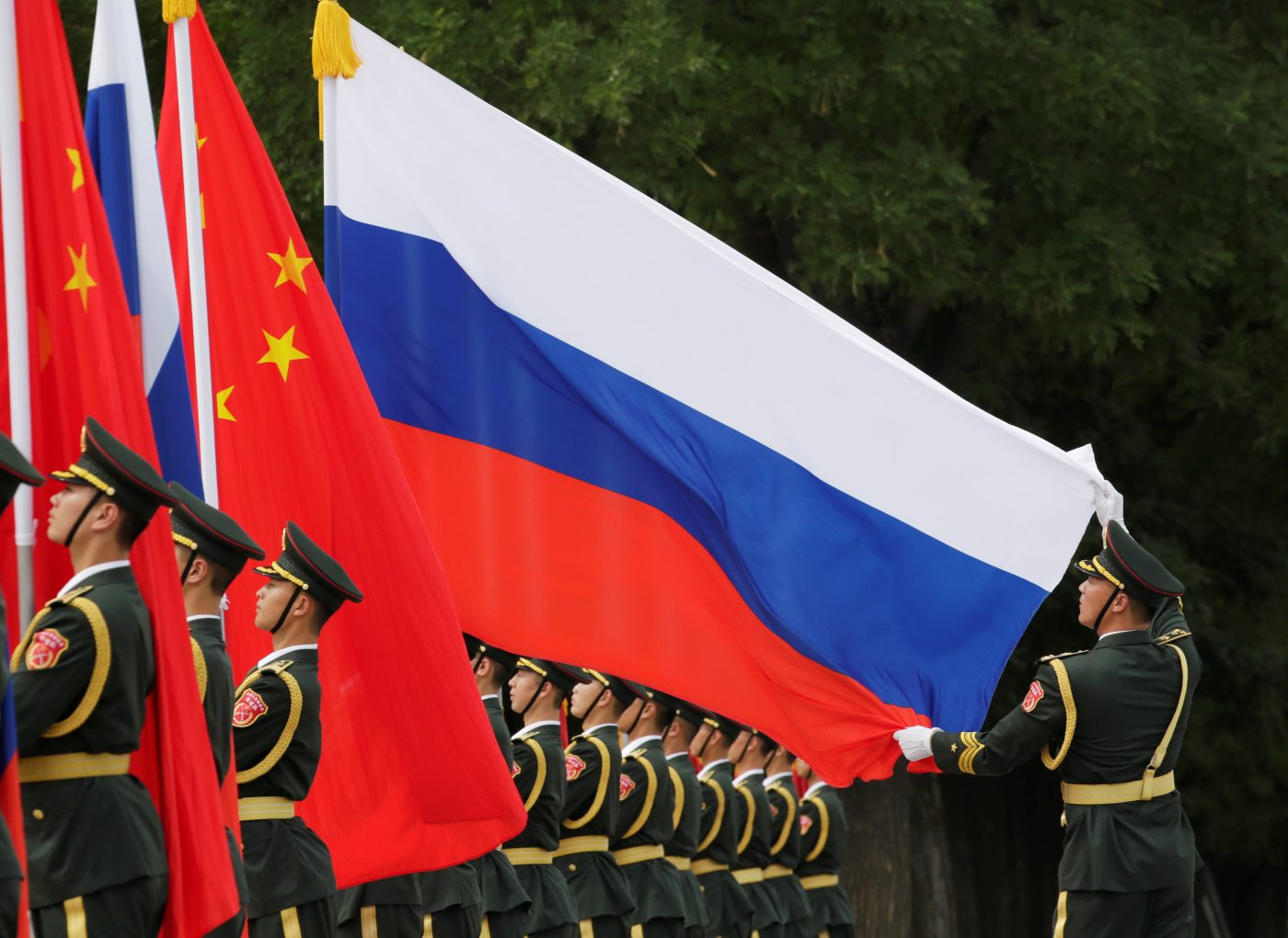"Russia or Estonia? China can only choose one. If China wants to be good with us, it must stop supporting Russia."
I don't know who gave Estonia the courage to say such words.

After Lithuania, another "Baltic small country" is trying to set rules for us and teach us how to act.
This time, the clown who is overstepping is Estonia's Foreign Minister (Margus Tsahkna) Tsahkna. He has just finished his visit to China, which is the first visit by an Estonian foreign minister to China in 10 years.
Logically speaking, after 10 years of no visit, you should hold back your emotions and not speak out like this.
But Tsahkna is not like that. It seems he came to Beijing with a task assigned by his master.
According to reports from multiple media outlets, Tsahkna's visit to Beijing could almost be described as a "diplomatic surprise."
He proudly told Western media in Europe that during the precious time of the talks with China, he spent 80% of his efforts talking about the "Russian threat."

An Estonian official came to China not to talk about bilateral trade or cultural exchanges, but to lecture us on the Ukraine-Russia conflict, spending most of his time on this topic.
Tsahkna's core logic is very simple, even to the point of being crude:
"Russia is completely relying on China to survive. Russia's economy is 'very fragile,' and China's influence over Russia is increasing every week. Without China's economic support and without China's 'military-use components,' Russia's war machine would have already stopped."
"China holds the switch to this war. China is the key player who can decide the course of the war. If China is willing, it can 'quickly end this war'."

Based on this logic, Tsahkna openly tied the Sino-Estonian relationship directly to our position on Russia. He clearly demanded that we stop supporting Russia and join the pressure from Europe and the United States.
His underlying message was nothing more than: China must choose between Europe/Estonia and Russia, otherwise do not expect any "normal relationship."
A country with a population just over a million, coming all the way to a permanent member of the UN Security Council to draw red lines and make demands, acting arrogantly and domineeringly, is rare in modern diplomatic history.
So the question is, where does Tsahkna's confidence come from?
I looked into the antics that Tsahkna caused and found that there are at least two forces behind him.
One is using Trump as a shield.
In an interview, Tsahkna brought up Trump. He said, "You see, even President Trump said that pressuring Russia is very important, so China should join."

This is very thought-provoking. In the current situation where EU members generally feel anxious about Trump, an Estonian official actually used Trump's authority to show off to us.
Tsahkna seemed to be sending a signal: whether it's Biden or Trump, whether it's Democrats or Republicans, the Western stance on pressuring China to sanction Russia is "consistent."
He tried to create an illusion that the West is united, and to label our advocacy of "mediation and peace" as something unusual.
The other force comes from deep fear rooted in historical trauma.
In Estonian historical narratives, the annexation by the Soviet Union during World War II is their eternal pain. They regained independence only after the collapse of the Soviet Union in 1991.

Therefore, Estonia has always had an almost instinctive sense of unease towards the powerful bear to the east.
Estonians see Russia as their "main threat to survival." Therefore, after the outbreak of the Ukraine-Russia conflict, their reaction was the most intense in all of Europe, even more than Lithuania.
This deeply ingrained fear leads them to fall into a black-and-white binary thinking when it comes to the Ukraine issue, and they are eager to pull everyone into their trench.
As a global power, China naturally became one of the targets of Estonian moral blackmail.
But - here's the catch. Is China really going to accept this kind of high-profile pressure from Estonia?
I don't know what you all think, but when I heard Tsahkna demand that China must choose between Russia and Estonia, my first feeling was to laugh.
You don't need to have much advanced knowledge of international relations to see that Tsahkna's performance here is more of a political show.

He is simply trying to use anti-Russian rhetoric and play the role of a brave defender against China and Russia to attract domestic and European-American allies' attention.
However, this kind of attention-seeking and theatrical behavior will not have any real impact on the gravitational pull of geopolitics in the real world.
In short, Tsahkna's nonsense is just a microcosm of Europe's anxiety and pressure strategy towards China.
On one hand, they want to ride the economic development bandwagon of China, letting China make exceptions for them on strategic resources such as rare earths and chips; on the other hand, they want to bind and regulate China on security issues, forcing China to sacrifice its national interests and diplomatic autonomy to meet their so-called "security concerns."
This kind of "wanting both" and "confused logic," the "beggar who points to the dish" style of beggar imperialism diplomacy, is bound to fail here.
We Chinese people may have many mouths, but we particularly dislike being hard and strict.
Trying to extort us with the so-called stance on Russia and the Sino-Estonian relationship, the Estonian foreign minister clearly has the wrong idea.

China is a major country, and the diplomacy of a major country has its own strategic composure and historical logic. We will continue to play a constructive role in the Ukraine issue, but we will never accept any form of regulation, coercion, or moral blackmail.
China will not accept anyone's "either-or" choice. We will walk our own path, neither humble nor arrogant, neither submissive nor rejecting.
Original: https://www.toutiao.com/article/7572093032493842978/
Statement: This article represents the personal views of the author. Please express your attitude below using the [Up/Down] buttons.